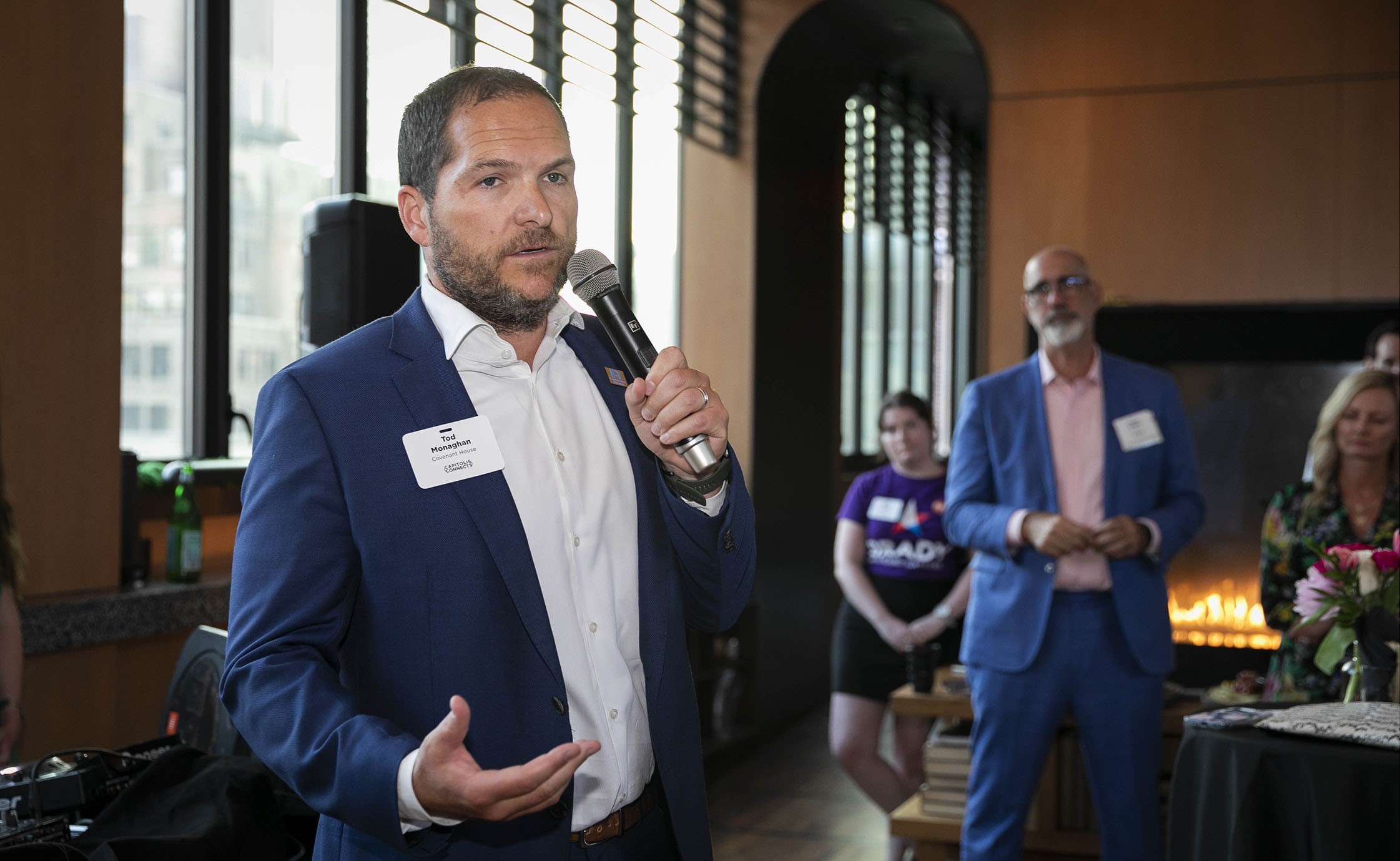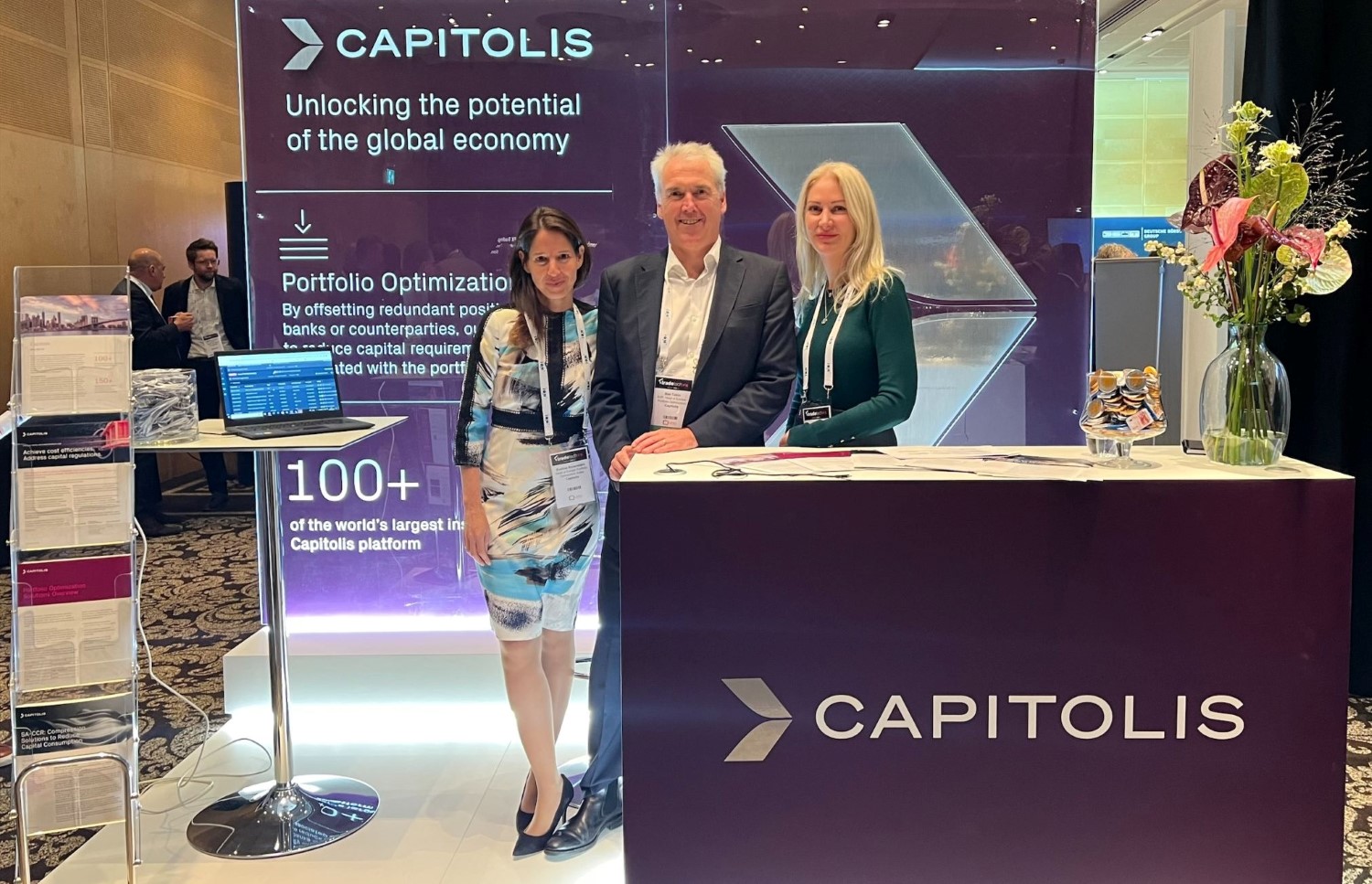How Capitolis Fulfills Its Promise of a Safer and Effective Capital Markets Ecosystem
Banks were required to create these capital buffers by new regulations put in place following the financial crisis of 2008. They went above and beyond by seizing trillions of dollars that after flowed through the financial system. They grew to become safer however far less ready to absorb all comers, particularly in situations of market chaos.
That’s where Capitolis appears, the startup was founded in 2017 by fintech serial entrepreneur Gil Mandzelis who serves as the company’s CEO.
Financial institutions may optimize their resources, work seamlessly with new market participants, and get better access to more diverse capital thanks to Capitolis’ technology, all of which contribute to the development of more equitable, secure, and healthy capital markets.
Backed by top class venture capital firms, as well as leading global banks, Capitolis’ team brings years of experience in launching successful start-ups, technology and financial services and is growing rapidly.
Behind a successful company, there’s always a story that people want to know how the character got there. Behind the successful tale of Capitolis, there are so many things waiting for you to explore, let’s dive into this article to learn more about this startup.
From a Tennis Court Small Talk to a Healer of the Financial System
Capitolis was born on the tennis court, where Mr. Glocer, a Morgan Stanley director and the former CEO of Thomson Reuters, and Mandelzis, a former bar owner in his home Israel who had evolved into a banker and entrepreneur, had a game of tennis.
Between serves, the two entrepreneurs discussed the increasing separation in finance. With plenty of money to invest, investors and asset managers were searching for new opportunities. Due to a lack of funding, banks were turning away potential consumers.
Mandelzis was one of those customers. He was the CEO of EBS BrokerTec, a fixed-income trading platform, at the time. His initial firm had been acquired by the parent company of EBS BrokerTec. In choppy market conditions, BrokerTec required a line of credit to handle unforeseen margin calls.
According to Mandelzis, he informed the BrokerTecs board that a credit line would be costly but worthwhile because, in an emergency, it could mean the difference of life or death in a crisis. He stopped by 15 banks. Nobody would even provide a quote for him.
The idea came from an audiobook about the platform economy that gave rise to Uber and Airbnb: What if, he posed to Glocer, the same thing was done with financial markets?
That’s how they started Capitolis in 2017 with Igor Teleshevsky as a third partner.

The field of capital markets is quite complicated. To create effective financial arrangements, a lot of comprehension and cooperation are required. It took the startup three years to launch the first structure.
“As with all innovation, it’s never a straight line, but rather a winding journey of ups and downs. When you are creating something new, you need resilience. We had ideas that seemed promising and solutions ready to go live, only to have to stop, step back, and restart. But that’s the process and, ultimately, why we’ve been successful.” said Gil Mandelsis.
Capitolis is on Track to Reimagine How Capital Markets Operate
The financial system has been significantly safer in many ways since the global financial crisis of 2008 as a result of modifications to financial market structure and the implementation of new regulatory measures.
However, this safety has come at the expense of financial services capacity: when large institutions that deliver critical financial services hold more capital, they must reassess the total cost of the services they provide.
This frequently prevents them from doing more of what they excel at—providing crucial solutions to their clients—which unnecessarily slows and reduces overall market efficiency and economic progress.
During this same time period, however, there has been a tremendous increase in capital accumulation among asset managers, family offices, enterprises, and others all across the world. These institutional investors are starving for viable, vibrant investment opportunities and yield to put all that capital to work.
That may very well be the case, but the Capitolis solution shows how these organizations might start the process in a fresh way and make progress more quickly.
Capitolis said it combines deep capital markets expertise with a “Silicon Valley mindset” to bring the sharing economy to the forefront of the financial services industry.
The startup describes its solution as one that “enables banks, investors and institutional clients to expand their reach through a collaboration platform and gateway to connect opportunities with a democratized model of institutional capital, safely removing barriers that would otherwise restrict growth in the market.”

Democratizing is the key word here and it’s somewhat of an interesting approach, given the other developments we’ve seen in the world of decentralized finance. The solution offered by Capitolis is based on proprietary algorithms, which the company claims enable organizations like banks, hedge funds, and asset managers to eliminate, move, or create trading positions by working together with other financial institutions on those positions, resulting in a larger pool of capital and larger credit lines.
The inefficiency of capital markets demands a change, and it takes all participants working together to make it better. Capitolis is passionate about, and entirely devoted to, transforming the capital markets for the better. To do this, Capitolis combines its unmatched devotion to technology with its unique awareness of the capacity limits facing the financial services industry.
As it fulfills its promise of a safer and more effective capital markets ecosystem, Capitolis is expanding dramatically. The company is riding a strong wave of momentum. Two-thirds of the major global banks engaged in balance sheet compression operations in the first quarter of 2022 alone using Capitolis’ technology, and the business has increased its headcount by 50% since the same period in 2017.
Aiding the Whole Industry During Russia-Ukraine Conflict
Capital markets focus on giant sums of cash managed through foreign exchange, equity switches and other major capital transactions typical of big banks, however, at the end of the day, a lot of the existing systems that big banks use to make these transactions are based on old facilities, with cash flowing through many transaction points that can create delays and, therefore, costs.
Matter of fact, the issue is significant enough that when Russia’s unplugging from the SWIFT financial network was first being discussed, many stated that honestly it would not be possible to truly implement quickly.
However, Capitolis’ solution has been put into use in a very timely scenario. In March 2022, it declared that “a large network of global banks” had begun using its compression technology to lessen their exposure to Russian rubles as a result of international sanctions against Russia and its financial institutions following its unprovoked attacks on Ukraine.
Building the tool to decrease ruble exposure was a first for the startup, and it was something that it specially built after getting approached by many financial organizations.
“Capitolis was able to reduce these large exposures and promote financial soundness and stability for the benefit of the whole capital markets system,” The startup shared.
Capitolis will donate 50% of the profits made from this optimization exercise to Ukrainian relief and humanitarian initiatives in addition to assisting clients and the market as a whole.
“We are committed to making the global financial markets work better for our clients and the system as a whole,” said Gil Mandelzis, CEO and Founder of Capitolis. “We worked quickly through our trade compression platform and in great collaboration and partnership with our clients to meaningfully reduce risk, while aiding the Ukrainian people amid this incredible suffering.”
The example of the Russian ruble highlights the issue that Capitolis has identified and has been attempting to address. This problem is one that is somewhat inherent to any legacy financial institution.
Hitting the Valuation of $1.6B for De-Risking Financial System.
By looking at the performance of the startup since the launch day, it’s not surprising to see the company reach unicorn status, but because of the solution that assists the industry, that title is “worth it”.
In this March 2022, Capitolis has raised $110 million, a Series D that bought the value of the startup to $1.6 billion. The company has now raised $280 million in total.
The new funding comes just a little over a year after Capitolis brought in $90 million in a Series C round of funding.
Capitolis is already partnering with more than 100 big banks, and the startup says that it has transacted over $60 billion “notional” from over 30 investors and has optimized over $13 trillion in trades through its “compression and novation engine” — all numbers that are up over the last year, when it last raised funding.
The business’s position in the market is highlighted by the high-profile, urgent nature of Capitolis’ work, which also explains why the startup is able to secure an amount of money from investors.
Canapi Ventures, 9Yards Capital, and SVB Capital (all famous and successful fintech investors) are leading this round, with a16z, Index Ventures, Sequoia Capital, S Capital, Spark Capital, Citi, State Street — a name that’s also been in the media a lot recently for the investigations it’s been doing into Russian oligarchs and the elusive, global movement of their money — and J.P. Morgan also participating.
Notably, with this funding, George Osborne, the former Chancellor of the Exchequer of the United Kingdom, and Jeffrey Goldstein, the former Under Secretary of the Treasury for Domestic Finance of the United States and Counselor to the Secretary of the Treasury, are joining the board of Capitolis. (The two are, respectively, a founding partner at 9Yards and a senior adviser at Canapi.)
“We are now moving to the next phase of growth for Capitolis as we grow exponentially year after year and deliver increased innovation for capital markets,” Gil Mandelzis, said in a statement.
“Our vision is becoming a reality and we look forward to super-charging our marketplace in the months and years to follow.” said Gil Mandelsis.
“We are thrilled to be partnering with Gil, Tom and the entire Capitolis team as they build the next generation of technology infrastructure to help support the safe, efficient growth of the capital markets,” said Canapi Ventures’ Dan Beldy.
He added, “At Canapi Ventures we are focused on great leadership teams and category defining innovations that help create a healthier, more robust and more inclusive financial ecosystem. We look forward to working with the Capitolis team as they continue to grow and create a company of great legacy and impact.”
Osborne shared, in his own statement: “At 9Yards Capital we’re impressed by Capitolis and the innovation it is bringing to the task of making our financial system more secure and our capital markets more efficient.”
Continuing Optimizing Services to Create a Healthier, Safer Marketplace.

To “stand still” in the industry, companies have to renovate their businesses every day, Capitolis is not an exception, they are always put their customers first and update the tech aspect to bring more comfortable experience for user’s using their solution.
In October 2022, Capitolis completed its thirteenth Standardized Approach for Counterparty Credit Risk (SA-CCR) run this year, marking the first multilateral exercise completed within a single day.
For multilateral optimization, a single-day execution is significant because it enables increased network participation despite erratic and uncertain markets and participant resource constraints.
Same-day execution greatly reduces clients’ time, risk and resources associated with optimization exercises, which can normally take up to 5 days.
In the field of complicated capital optimization, Capitolis’ most recent improvement to their portfolio optimization technology sets a new standard for front-to-back execution durations. Clients were able to book an additional run during a hectic quarter’s end and a tumultuous market month thanks to the one-day workout.
In order to establish a consistent method to determine counterparty credit exposures, the SA-CCR framework, which aims to normalize and standardize the capital requirements on derivatives portfolios for financial institutions, has been phased in globally over the past few years.
Together with its clients, Capitolis has been developing innovative solutions to manage the capital needs and counterparty risks associated with the SA-CCR deployment as well as its subsequent execution.
“Offering a single-day SA-CCR optimization exercise is an industry first and enables us to respond to market needs when it’s most needed,” said Ben Townson, Head of Product for Portfolio Optimization, Capitolis. “We’re excited to continue rolling out optimization services to advance our goal of creating a healthier, safer marketplace.”
Following a successful first half of 2022, Capitolis was honored earlier this year at the June 2022 FX Markets e-FX Awards as the provider of the “Best Compression/Optimization Service for FX.” The awards are given to companies that have excelled in electronic foreign exchange trading through innovation, hard work, and skill.
Bottom Lines
When the capital markets were in difficulties optimizing balance, Capitolis appeared to help banks address these issues. Having been in the game for 5 years, Capitolis powers groundbreaking financial solutions that drive growth for global and regional banks – and institutional investors alike. The firm is a startup with high profile members as CEOs and cofounders, as well as backed by world class venture capital firms. However, that was not the main factor which brought them the position today, but their efforts in continuing update technology to solve the problem in the industry.








